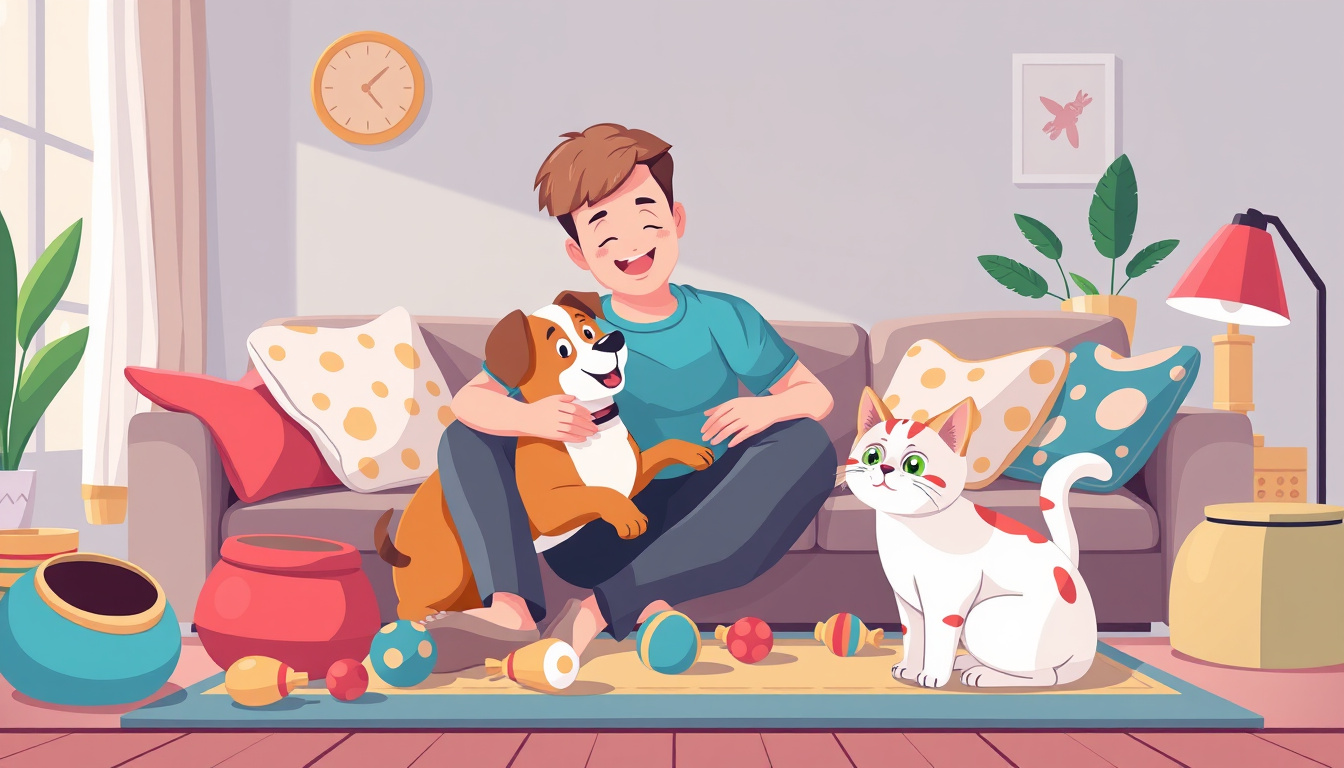Pet parenting is a fulfilling yet challenging journey, filled with joy and responsibility. As a pet owner, understanding your furry friend’s unique needs is paramount to ensure a happy and healthy life together. In this essential pet parenting guide, we will delve into the fundamental aspects of caring for your beloved companions, covering everything from creating a safe home environment to nutrition and training tips. Whether you’re a seasoned pet parent or a newcomer, these guidelines will help you master the art of pet parenting, ensuring your bond grows stronger while providing the best for your furry friends.
Make your car happy and prevent spraying now!
Key Takeaways
- Knowing your pet's specific needs is crucial for responsible pet ownership.
- A safe home environment prevents accidents and ensures your pet's well-being.
- Proper nutrition is essential for your pet's health and longevity.
- Consistent training fosters good behavior and strengthens your pet's obedience.
- Regular checkups and grooming are vital for maintaining your pet's overall health.
Understanding Your Pet's Needs
Understanding your pet's needs is an essential aspect of responsible pet ownership, and this is where comprehensive pet parenting guides come into play. These guides are invaluable resources that offer insights into the physical, emotional, and social requirements of various pets. For instance, they can help you learn about the specific dietary needs of your furry friends, the importance of regular veterinary check-ups, and the significance of exercise and stimulation in keeping your pet healthy and happy. Moreover, pet parenting guides also emphasize the importance of socialization, illustrating how interaction with other animals and humans can drastically improve your pet's well-being. By utilizing these informative tools, pet owners can foster a more fulfilling and harmonious relationship with their beloved companions.
Creating a Safe Home Environment
Creating a safe home environment is essential for every pet owner, and it involves understanding the unique needs of your furry companions. In this section of our pet parenting guides, we will explore vital steps you can take to ensure that your home is a secure haven for your pets. Start by identifying potential hazards such as exposed wires, toxic plants, and small objects that could be swallowed. Use baby gates to restrict access to stairways and areas that may pose a risk. Additionally, invest in pet-proofing supplies like cabinet locks to safeguard cleaning products and other dangerous items. Remember, a well-organized home not only protects your pets but also enhances their overall well-being. By following these guidelines, you can foster a loving and safe environment, allowing your pets to thrive while reinforcing your role as a responsible pet parent.
'Animals are such agreeable friends—they ask no questions; they pass no criticisms.' - George Eliot
Nutrition: Feeding Your Furry Friends Right
When it comes to pet parenting, one of the most crucial aspects to consider is nutrition. Feeding your furry friends right is not only essential for their overall health and well-being, but it's also a significant part of responsible pet ownership. In this section of our pet parenting guides, we will delve into the various nutrients your pets need, the importance of a balanced diet, and tips for choosing the right food. Each breed and age group may require different dietary needs, so understanding what works best for your pet can help prevent health issues later on. From high-quality commercial pet foods to incorporating fresh fruits and vegetables, we’ll provide you with insights that will help ensure your beloved pets lead happy, healthy lives.
Make your car happy and prevent spraying now!
Training Tips for Well-Behaved Pets
Training your pet is an integral part of effective pet parenting, and there are numerous pet parenting guides available to help you on this journey. Whether you're welcoming a new puppy into your home or teaching an older dog some new tricks, consistency and patience are key. Start with basic commands such as ‘sit’, ‘stay’, and ‘come’. Use positive reinforcement techniques like treats and praise to motivate your furry friend during training sessions. Setting aside dedicated time each day for practice can significantly enhance your pet's behavior. Additionally, consider socialization opportunities, such as dog parks or obedience classes, where your pet can interact with other animals and learn proper behaviors in a controlled environment. Remember, each pet is unique, and adjusting your training methods to suit their personality will yield the best results. Engaging with reliable pet parenting guides can also provide you with insights and advanced techniques tailored to your specific needs.
Regular Health Checkups and Grooming
As dedicated pet parents, it is crucial to prioritize your furry friend’s overall well-being, which includes regular health checkups and grooming. These practices are vital components of effective pet parenting guides aimed at ensuring that your pet leads a healthy, happy life. Regular veterinary visits allow for early detection of potential health issues, vaccination updates, and tailored dietary advice that can prevent many common ailments. Moreover, grooming goes beyond just keeping your pet looking neat; it plays a significant role in maintaining their health. Regular brushing, nail trimming, and dental care help prevent skin infections, dental diseases, and other concerns. By following these pet parenting guides, you not only foster a deeper bond with your pet but also invest in their long-term health, ultimately providing them with a joyful and enriched life.
Frequently Asked Questions
What are the essential needs of my pet that I should understand?
Understanding your pet's needs includes recognizing their dietary requirements, exercise habits, social interactions, and mental stimulation needs to ensure their overall wellbeing.
How can I create a safe home environment for my pets?
To create a safe home for your pets, remove hazardous items, secure cords and wires, ensure toxic plants are out of reach, and provide safe spaces for them to relax.
What should I feed my pet to ensure proper nutrition?
Feeding your pet a balanced diet tailored to their species, age, and health needs is crucial. Consult with a veterinarian to choose the right food and portion sizes.
What are some effective training tips for my pet?
Effective training tips include using positive reinforcement, being consistent with commands, starting with basic obedience commands, and socializing your pet with other animals and people.
How often should I schedule health checkups and grooming for my pet?
Regular health checkups should be done at least once a year, although more frequent visits may be required for older pets or those with health issues. Grooming frequency depends on the breed and coat type.
About
How to stop a cat from spraying offers useful tips and advice on how to stop the undesired and nasty behavior with a fun, proven and effective method that will make your cat love you even more.
Comments
Post a Comment